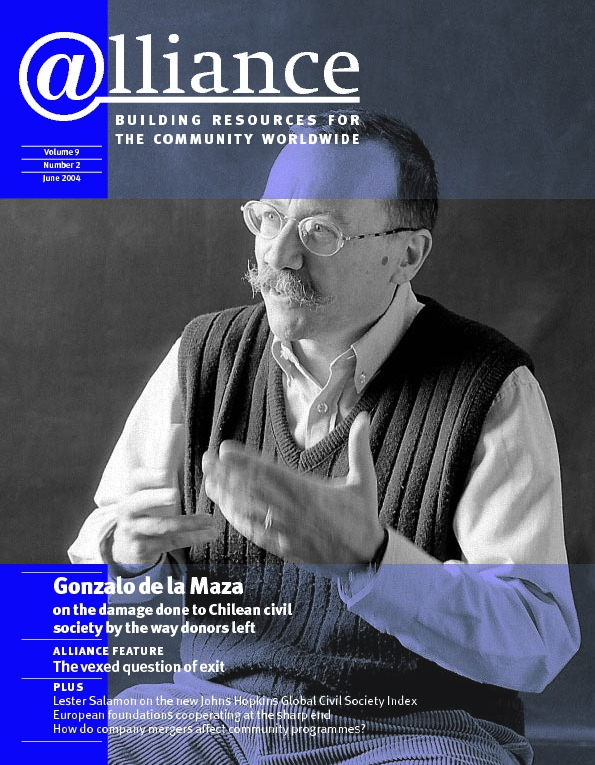Risky Business is a welcome addition to the growing body of literature on social enterprise. In fact, if you only read one book on this increasingly important subject, make it this one.
This book has been a few years in the making, but its authors aren’t latecomers to the subject. On the contrary, Lee Davis, Nicole Etchart and their team at the Nonprofit Enterprise and Self-sustainability Team (NESsT) have been busy in the trenches, working with a number of non-profits in Central and Eastern Europe and Latin America on developing revenue-generating strategies.
Risky Business shares the lessons learned from their experiences, and some interesting and thought-provoking analysis, with a wider audience of practitioners, funders, academics and policymakers. Given their solid basis in actual practice, the authors place a high priority on thinking through practical recommendations for practitioners. The clever title says a lot about the cautionary note that they take away from their data analysis. They repeatedly point out the risks and obstacles that non-profits should be aware of before venturing into relatively uncharted waters. This book helps to chart a bit more of the map, making the waters slightly less treacherous.
The book starts with an excellent overview of the history of self-financing and social enterprise, and is careful to define these terms clearly and accurately. The foundation of the book, on which the analysis is based, is the case studies, which look at a variety of self-financing strategies employed by 45 civil society organizations (CSOs) in 15 countries. Most of the cases come from the two regions where NESsT works: Central and Eastern Europe, and Latin America. A smattering of cases from other regions, including the US, Europe and, Africa, are also included.
If there is one regrettable weakness of this study, it is that the small number of cases from other regions doesn’t provide enough material for a clearer understanding of the experiences of CSOs in these regions. Nor do they really illuminate any relevant comparisons with CSOs in the major regions of the study. The authors downplay regional differences and highlight the common challenges faced by CSOs in self-financing regardless of where they are located. None the less, one would hope that future research by NESsT and others would do more justice to self-financing activities in Africa and Asia, in particular.
The book’s key findings go a long way towards unpacking and dispelling some of the simple generalizations and myths that have become part of the perceived reality about CSO self-financing activities. For example, they note that ‘The perception among many CSOs and donors that self-financing activities produce inherent and unique problems to organizational mission is oversimplified and misleading. The study demonstrates that while self-financing activities may produce tensions with organizational mission, these tensions are not inherent to self-financing …’
Furthermore, ‘More often than not, the challenges posed by self-financing activities precipitate changes in CSO operations that produce positive benefits at multiple organizational levels, including internal culture, financial management, and stakeholder relations.’
On the whole, the authors are upbeat about the potential for CSOs to generate revenues without damaging their ability to focus on their organizational mission or weakening their institutional structures. In fact, there is evidence to suggest that with the right tools and support, effective and entrepreneurial leadership, and an enabling external environment, revenue-generating activities can even strengthen both aspects. Risky Business provides one of these tools: a framework for measuring and managing the performance of revenue-generating activities so as to maximize positive impact on their parent organizations.
This book should be a welcome addition to the bookshelves of CSO managers and those who support them. I look forward to volume two …
Lisa Cannon is the founder and CEO of VOX, a global consulting practice on social change issues. She produced a case study of a South African NGO for Risky Business. She can be contacted at lcannon1@earthlink.net
Risky Business: The impacts of merging mission and market
Lee Davis, Nicole Etchart, María Cecilia Jara and Brian Milder NESsT US$30 (available only on CD-ROM) ISBN 1930363044
To order contact NESsT.
Website http://www.nesst.org/furthering_publication.asp


Comments (0)